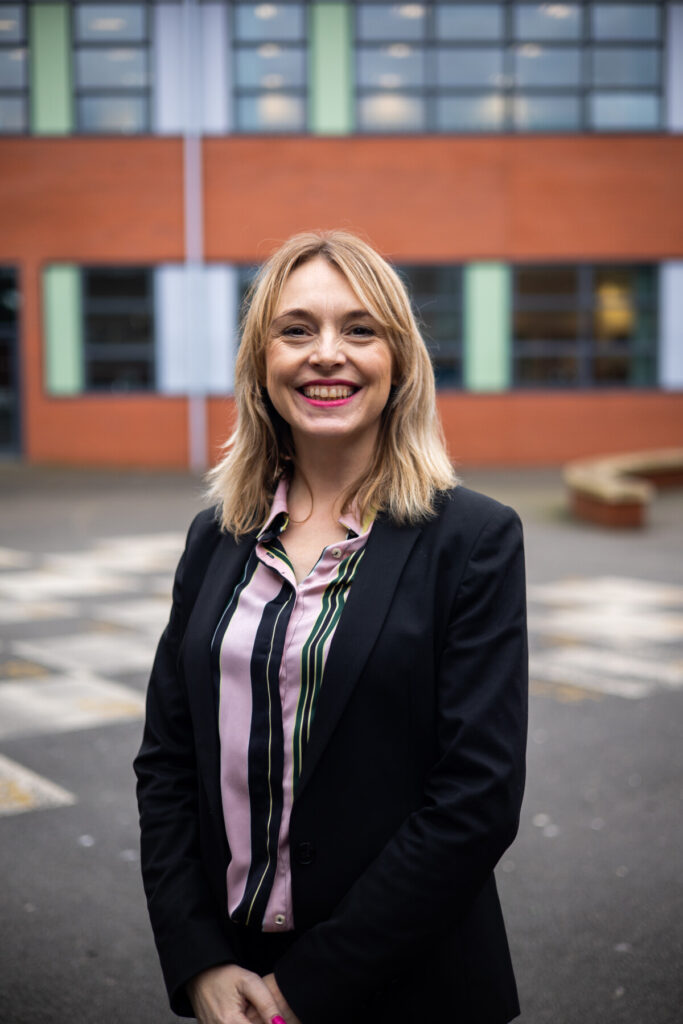“A crisis of lost learning is sweeping across schools in England,” a report by the education charity The Difference said this week.
Children lost a total of 11.5 million days’ worth of learning in the autumn term of 2023 – a huge rise from pre-Covid – as suspensions, exclusions and home education soar.
Children not in school are more likely to be those in poverty, with special education needs or in social care.
To “turn the tide”, the report said that schools must become more inclusive, and children must be made to feel they belong there. But how?
Schools Week spoke to the schools leading on the four key inclusion principles outlined by the report…
Principle 1: Inclusion built from the universal up
At Heritage High School, a secondary in Chesterfield, suspensions have halved and persistent absence has fallen by 4 per cent after the school introduced “universal inclusion” policies.
Changes such as free breakfasts and “community lunches” which ensure that no child eats alone mean youngsters “feel really positive about coming in”, said headteacher Deb Elsdon.

After noticing a peak in absences on Fridays, the school now offers incentive-led treats and rewards at the end of the week. A “culture of appreciation” between staff and pupils encourages praise for positive actions.
“What we’re trying to do is really [ensure] that sense of belonging,” said Wes Davies, CEO of The Two Counties Trust, which runs the school. “That genuine inclusion – that ‘I belong in any classroom, on any corridor in any assembly’.”
This extends to excluded pupils. Heritage High’s intervention centre is led by senior leaders and subject specialists “to give a very clear message that our priority children have the most senior staff”, Elsdon added.
‘Low sensory environments’
Xavier Catholic Education Trust, a MAT with 19 schools in Surrey, has turned classrooms into “low sensory environments” to make it easier for all children, not just those with SEND, to learn.
SEND lead Charlie Allison said: “We have nothing on the windows, nothing hanging from the ceilings… we have clear desks so that, actually, every single child can learn better in that environment. The teachers give the children a huge part of the room.”

The Difference’s report urges the government to boost whole-school inclusion across the country by providing £850m over the next five years, which could pay for itself.
Analysis suggested the funding would mean quicker support for 100,000 children per year, reducing the need for 35,000 education, health and care plans (EHCPs).
Currently most support is often funnelled into specialist interventions, while funding for “universal, preventative” support has fallen.
Principle 2: Inclusive culture led from the top
All school staff should “see inclusion as central to what they do and the everyday interactions they have with children”, The Difference said.
Davies has invested in sending leaders across his trust on courses to help boost their understanding of inclusion, helping them to build a “shared vision” of how to solve it.
“If I’m saying as a CEO, ‘every school is going to have a senior leader who has done [inclusion training], that really signals what is important to me, to the organisation, to children,” Davies said.
Principle 3. Inclusion is community collaboration
The report said that schools should “know their students’, families’, staff and wider communities’ strengths”.
Headteachers’ standards specify leaders should forge constructive relationships beyond the school. But Teacher Tapp polling has found that more than half of teachers had never received training on parent communication.
The report urged the government to add skills around working with families and local communities into its suite of professional qualifications.
Xavier Catholic Education Trust has an “every day is an open day” policy, meaning that visitors are always welcome. Outreach also includes parental workshops on sleeping patterns, healthy living and stress management.
“We want to be a lighthouse,” said director of inclusion Zelia Munnik. “We want to open our doors, and we want to be able to change cycles. And the only way in which we are going [to do that is to] get the children in school.
“We had to reach out to the families… those hard-to-reach parents… It’s leaving no stone unturned and being relentless in terms of our positivity… in order to build relationships with our families.”
‘Radically improve’ mental health support
The report also said the government should publish a plan to “radically improve” access to children’s mental health and speech and language support.
Forty thousand children are waiting over two years for mental health support, according to 2024 NHS England figures, while 6,000 children are waiting longer than a year for speech and language therapy.
Early intervention services have been slashed by half since 2010 and the number of school nurses has dropped by a third since 2009.
Gerry Robinson is executive headteacher at Haringey Learning Partnership, a local authority-run pupil referral unit (PRU) in north London. The school is bucking national trends.

Nationally, 4 per cent of children attending alternative provision (AP) achieve a pass in GCSE English and maths. At HLP, it is 40 per cent.
It is also successful at reintegrating children into local secondary schools.
Robinson attributes much of this success to a suite of specialist support on offer. The school has a team of targeted support staff, including a mentor, counsellor, social worker, educational psychologist and speech and language therapist.
However, part of this is due to extra funding from the DfE’s AP specialist taskforce.
“Through that resource…we’re able to do speech and language screenings, we’re able for the children to see EPs (education psychologists) really quickly, to access mental health support really quickly,” Robinson told Schools Week.
“Those routes into services mean that we can identify what the needs are, and then put a support package in place… [ensuring] progress on to the next steps, which for many of our children is reintegration to mainstream.”
Principle 4. Inclusion is measurable
The report defined whole-school inclusion as “all staff supporting the learning, wellbeing and safety needs of all children, so that they belong, achieve and thrive”.
Inclusion can be measured by “understanding the wellbeing, safety and belonging of children” and by the amount of “lost learning” (which also includes managed moves, internal isolation and truancy).
The Education Alliance Multi-academy Trust (TEAL) surveys pupils on how they feel about various aspects of student life to understand their feelings about safety, belonging and wellbeing.
Jonny Uttley, the trust’s CEO, said: “Where a pupil’s attendance starts to drop… where their behaviour deteriorates, often the engagement score will have dropped first.”

Uttley believes the approach allows schools “to see every child on a really individual level” and “is potentially transformational for schools across the country”.
Similar work is underway at The Two Counties Trust, which has begun piloting a new system in which it emails pupils, parents and staff questions every half-term, to garner feedback on how included they feel.
Elsewhere, The Ted Wragg Trust has developed a centralised dashboard, bringing together live data from the trusts’ 17 academies. Data on exclusions and lost learning is shared with school leaders weekly.
The dashboards show headline measures like suspension and persistent absence at trust level. At school level, they show the outcomes which “feed” these, such as absence and lesson removal, and give breakdowns for specific cohorts including pupils with SEND.
Data helps identify patterns
The data is helping leaders to “proactively identify patterns and develop the strategy for the term ahead” and measure impacts of interventions.
“When we understand our communities better, we can help foster a true sense of belonging – one that inspires more children to engage with their education, feel connected to their school, and thrive within it,” said trust director of performance Jon Lunn.
The Difference’s report said most schools, trusts and the government currently collect only “limited and patchy” data on inclusion, and are often “flying blind”.
While exclusion data is collected, practices such as off-site direction, managed moves or internal inclusion are “less visible”.

For every excluded pupil, 10 more are “moved around the school system” under these practices, the report added. It said schools should improve data collection in these areas, and Ofsted should inspect it.
Researchers said the DfE should introduce legislation that provides oversight of pupil movements off-site and off-roll.
The DfE’s regional teams should also examine schools’ intakes, identify those that are least representative of their local community and ban them from growing.
The report did not provide a methodology on how to identify such schools, but pointed to the Education Policy Institute’s benchmarking tool.
It also said school performance measures should be based on multi-year averages and include long-term data on child outcomes such as employment and earnings data.
Kiran Gill, CEO of The Difference, said: “Our education system is failing the children who need it most. Despite school leaders’ efforts, the system works against them.
“This is the new frontier in education… It is in everyone’s interest to find solutions to the crisis of lost learning.”
















All very well pushing the inclusion agenda but how do you stop the exodus of teachers from the profession. It’s been made clear that inclusion is French for lower or even no funding and just get on with it without complaining. When is someone on these bodies going to acknowledge that teachers have already been taken to the edge and the limits of their endurance with all this talk of having to be inclusive on threepence halfpenny? Get real people. Years upon years of underfunding and increased demands have ground the teaching profession down. Many vote with their feet. Good luck with your plans because there’s no good will left.